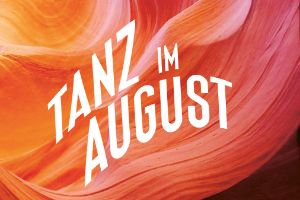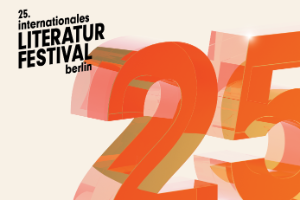
Artists
With works by
Edgar Calel (b. 1987) is a multidisciplinary artist who delves into diverse mediums to delve into the complexity of the indigenous experience, particularly through the lens of the Mayan Kaqchikel cosmovision. Drawing inspiration from spirituality, rituals, community practices, and beliefs, Edgar's work reflects the rich cultural heritage of Guatemala, where he resides.
Alice Chauchat (b. 1977) is a choreographer, dancer, teacher and mentor, whose work focuses mainly on the aspect of collaboration. She lives and works in Berlin.
Céline Condorelli is an artist based in London. Condorelli has a long-standing interest in the notions of work and play, her work addresses the boundaries between public and private, art and function, work and leisure, in order to reimagine culture and society, as well as the role of artists within them.
Massimo Furlan (b. 1965) is a choreographer, actor, performer, and writer based in Lausanne often exploring the connections between games and play.
Florentina Holzinger (b. 1986) is a choreographer, performer, stuntwoman and opera director, who challenges conventional boundaries and genre clichés with her innovative works. She lives and works in Berlin and Vienna.
Ingela Ihrman (b. 1985) explores strong emotions of everyday life between humans and non-humans, between art, craft and hobby culture, between science and theatre in a playful and awkward manner. She lives in Stockholm.
Martin Kaltwasser was born in Düren in 1965 and died in Berlin in 2022. He was an artist, architect and professor of sculpture at TU Dortmund University.
Agnieszka Kurant (b. 1978) is a conceptual artist whose works explore the phenomena of collective and nonhuman intelligence. She lives and works in New York.
Joar Nango (b. 1979) is a Norwegian-Sámi artist and architect. A founder of mobile library presented at the Architecture Biennale in the Nordic pavilion in 2023, an author of post-capitalist indigenous cinematography, a polymath and tireless thinker and doer.
Vitjitua Ndjiharine (b. 1988) is a multidisciplinary visual artist from Namibia. She develops strategies of deconstructing and re-contextualizing the pedagogical function of texts and images found within colonial archives. She was a resident at Dekoloniale Berlin in 2022 immersing herself in the history of Gropius Hain.
The Playground Project is an on-going traveling exhibition curated by Gabriela Burkhalter. It is based on the research project architekturfuerkinder.ch, which the political scientist and urban planner has been working on since 2006. The Playground Project was originally conceived for the 2013 Carnegie International in Pittsburgh and evolved into a playable exhibition for Kunsthalle Zürich in 2016. It then toured, among others, to DAM - Deutsches Architekturmuseum in Frankfurt/Main, and Bundeskunsthalle Bonn, and is now part of “Radical Playgrounds: From Competition to Collaboration” in Berlin. The accompanying catalog The Playground Project was published in three, constantly expanded editions (2016, 2018, 2023), and features initatives in Western Europe, the US, GDR, India, Hong Kong, Kenya and Mexico.
Tomás Saraceno (b. 1973) is an Argentina-born, Berlin-based artist whose projects dialogue with forms of life and life-forming, rethinking dominant threads of knowledge in the Capitalocene era and recognizing how diverse modes of being engage a multiplicity of vibrations on the Web of Life.
Mariana Telleria (b. 1979) is an Argentinian artist reflecting on the cultural meaning of everyday things, the possible uses of forms, and the way human civilization is defined by metaphysics, cosmogony, or philosophy.
The School of Mutants (Horacio Cadzco, Hamedine Kane, Boris Raux & Stéphane Verlet-Bottéro) with Stella Flatten is a collaborative platform for art and research initiated in 2018, in Dakar, Senegal. Departing from research into the pedagogical utopias in post-independence Senegal, the collective reflects on the legacies of African futurism, the Non-Aligned Movement, and Southern solidarities. It borrows its name from the University of Mutants, established in 1978 on the island of Gorée, Senegal, known for challenging the Western epistemological authority.
Irad Verkron was born in Germany and moved to Angola at the age of 9. In 2012, she founded the Verkron collective for urban art forms in the capital Luanda. Her large-format works in urban spaces are characterized by the combination of abstract forms and themes of the everyday, which are shaped by the resilience, strength and beauty of black Angolan women.
Raul Walch (b. 1980) is a visual artist and activist living and working in Berlin. Driven by political and ecological commitment, he produces sailboats, mobiles, kites, and flags often as a part of a collaborative and performative process.
